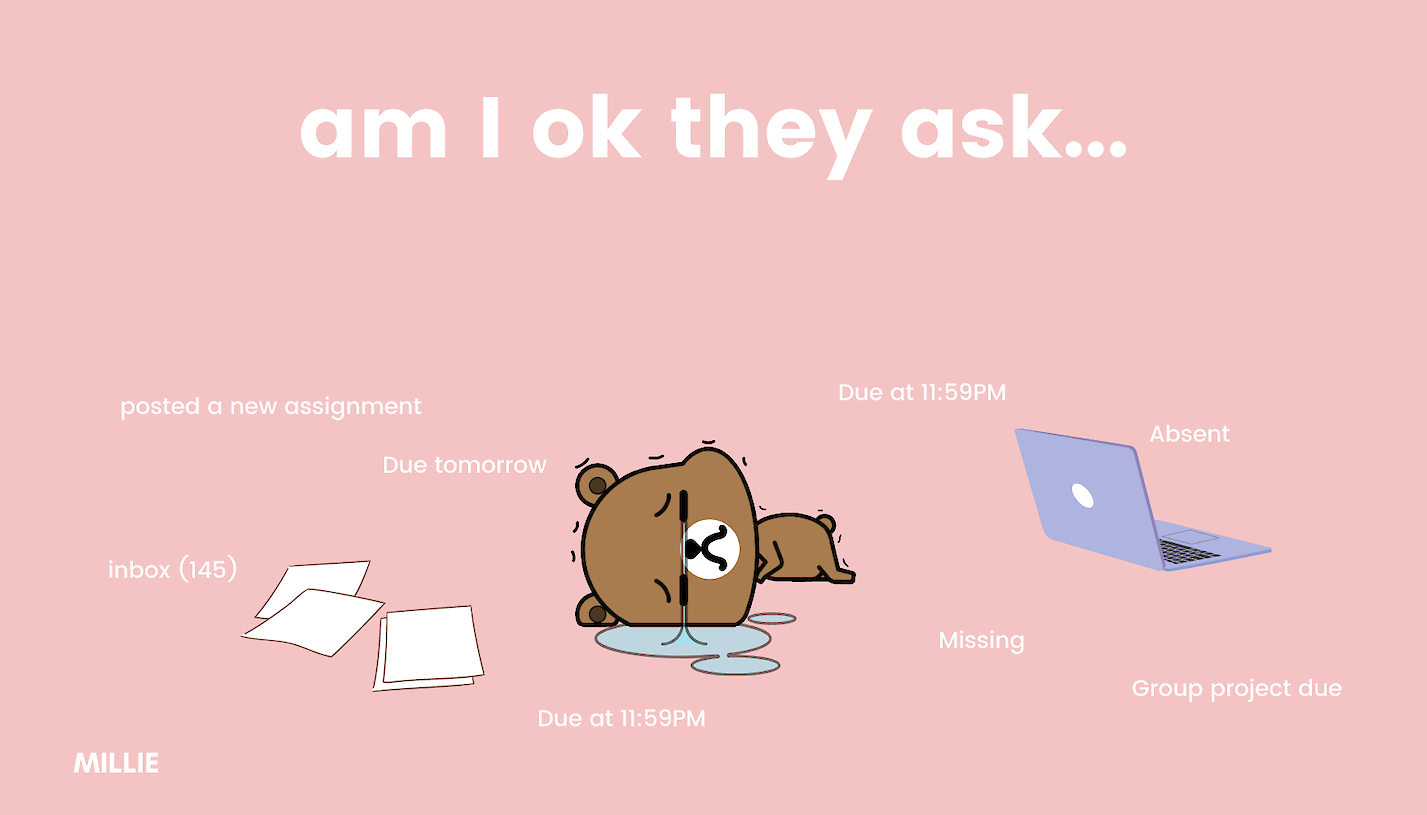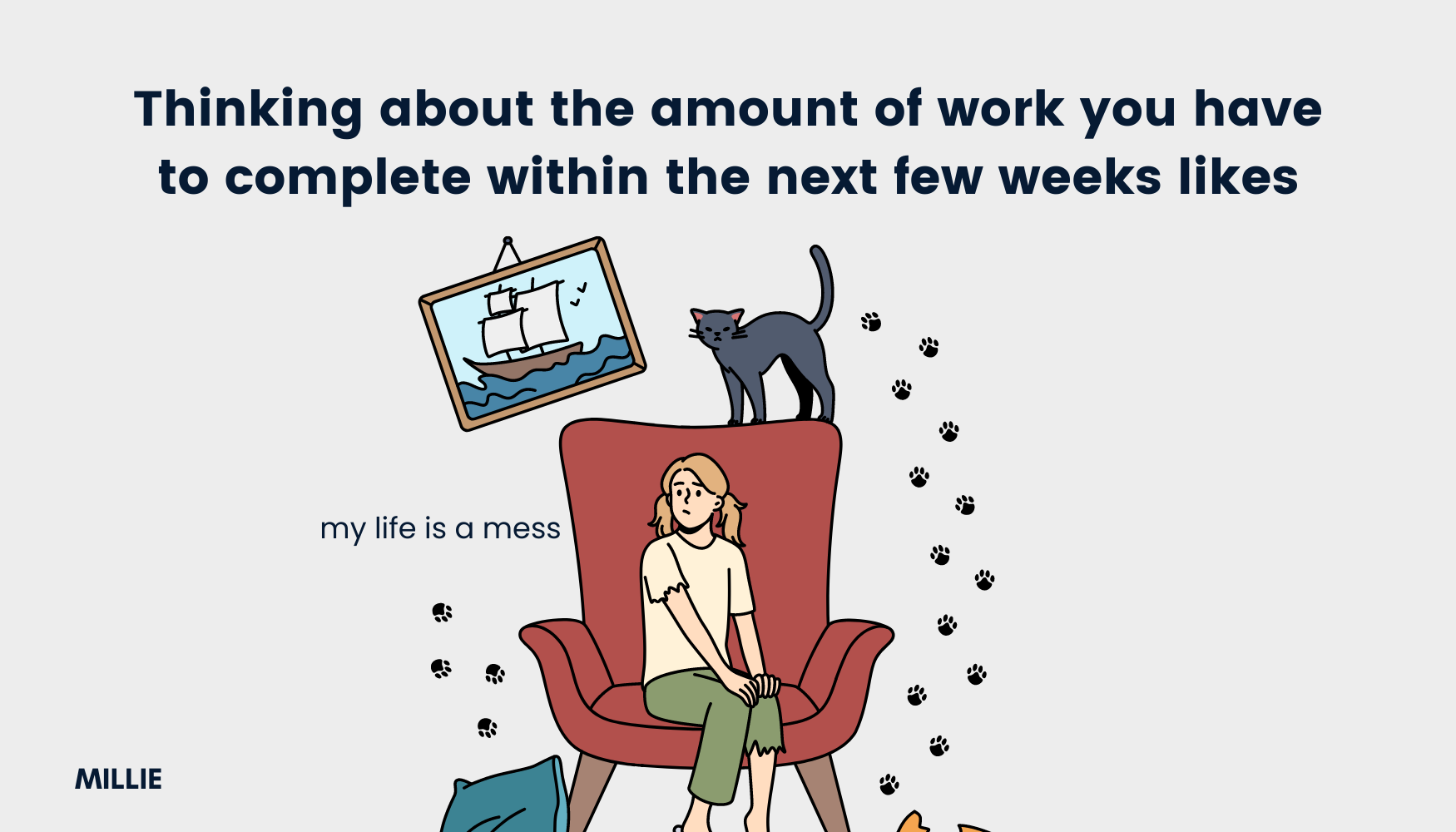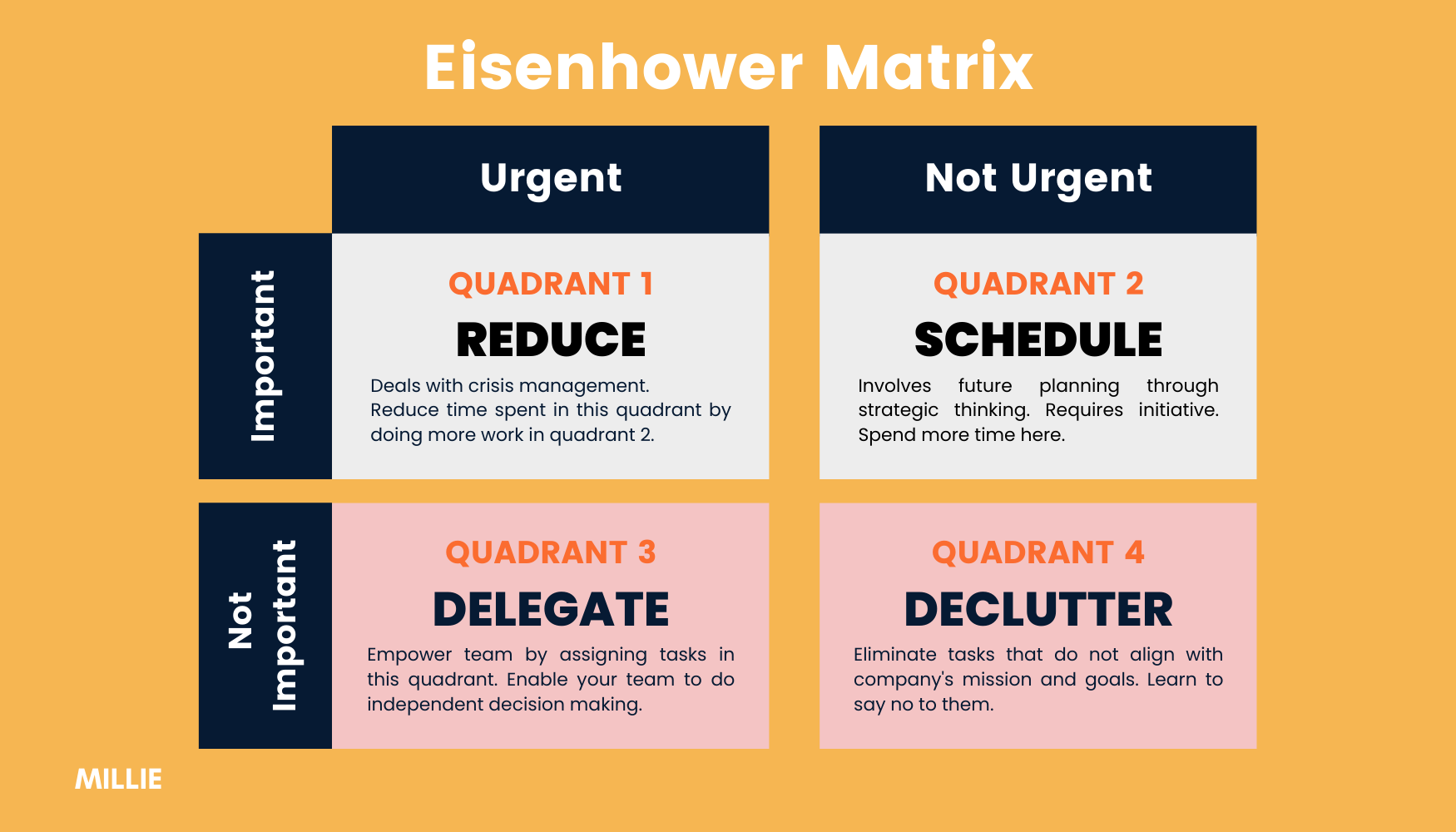You’re Not Lazy, Just Burnt Out
Written by Mariethe Joan Cobrito
You know you should probably finish that assignment…even though the deadline passed an hour ago. Motivation? What’s that? Lying down seems much better than doing the things you originally liked.
If this describes what you’re feeling, the chance may be that you are experiencing burnout. Burnout is a condition that results from too much stress and an inability to handle it. It is also characterized by three key factors: weariness, cynicism, and emotions of decreased productivity. Though this isn’t a condition that a doctor can diagnose you with, this doesn’t mean you can’t spot the signs or seek help to get better and get back on track.
[Disclaimer: This article is for educational purposes and is not intended to substitute for professional medical advice. If you feel that you need additional support, please seek advice from a professional.]
Signs of Burnout
There is plenty of overlap between being burnt out and simply being lazy, so it can be difficult to differentiate the two. Here is a list of signs to look out for when you are burnt out.
“Burnout is a condition that results from too much stress and an inability to handle it.”
- An overwhelming sense of being powerless to regain control is frequently accompanied by an emotional numbness or emptiness that makes you feel as though you are a spectator in your own life.
- If you were once self-motivated but have just started to feel worn out
- Often feeling emotionally out of control, and have become easily moody and irritated
- If you start neglecting self-care and isolating yourself because even simple tasks stress you out
- All of these happen in stages and not overnight
Burnout actually happens in stages, each with increasing levels of severity. By the time you reach the final stage you are more vulnerable to anxiety and depression, which is why it is so important to not just dismiss burnout for laziness so you can get the support that you need.
How to Recover from Burnout
One important thing to remember is to stop overwhelming yourself by saying that this is all your fault. It is normal to say that everything is your fault because you have been inefficient and simply lazy. Though there may be some truth to that, perhaps you could be more efficient, you may have noticed that simply working harder the next time is not going to cut it because the crux of your problem may be you feeling overwhelmed and burnt out.
As mentioned previously, burnout happens in stages and it will help you recover more effectively when you evaluate how burnt out you feel. Reflect on your past month and ask the following questions:
- How overwhelmed/exhausted did I feel?
- How critical/cynical did I feel?
- How productive did I feel?
- How much fun did I have?
After you have evaluated yourself, think back to what could be the possible sources of your burnout. Did you overwhelm yourself with too many extracurriculars which is causing you to fall behind on school work? Did you take on too many projects at work?
"The crux of your problem may be you feeling overwhelmed and burnt out."
Sometimes, this process does involve some hard pills that may be hard to swallow. You know you need to cut back on commitments but you may feel that you are too pressured to say “no” to certain tasks. You know you need to inform someone of your current status but you’re too afraid of the judgment it may bring. You may fear the stigma of being labeled as lazy and someone who is not good at their job. Or that if you don’t work as hard, your life is going to fall apart.
So take a step back. Write down all of the responsibilities and requirements that you have, take a good look at them and reflect. Objectively judge which of your responsibilities you can reasonably cut out. And don’t be afraid to inform your supervisor or your teachers about your current mental state because if anything, it is much better to sacrifice two or three responsibilities than see yourself become depressed and constantly anxious.
If you have some trouble proritising your responsibilities, consider the Eisenhower Matrix:
Then you can see how to make your processes more efficient and manageable, and look at what resources you have to make doing the work seem like less of a chore. For example, perhaps you may have repetitive tasks at work that you can codify into a written procedure or a set of guidelines to help you develop a routine that you can easily keep up.

When it comes to treating your burnout, it’s all about changing your outlook and reflecting on what has happened. Yes, it is difficult to look back on all your past mistakes and objectively look at what went wrong rather than easily blaming yourself for the whole situation. But after all of this is over, you’re going to finally start being who you are again, and this time you have equipped yourself with a better routine and better knowledge on what went wrong the first time.
Millie’s Newsletter features more mental health topics if you are interested in learning more, so subscribe today!

